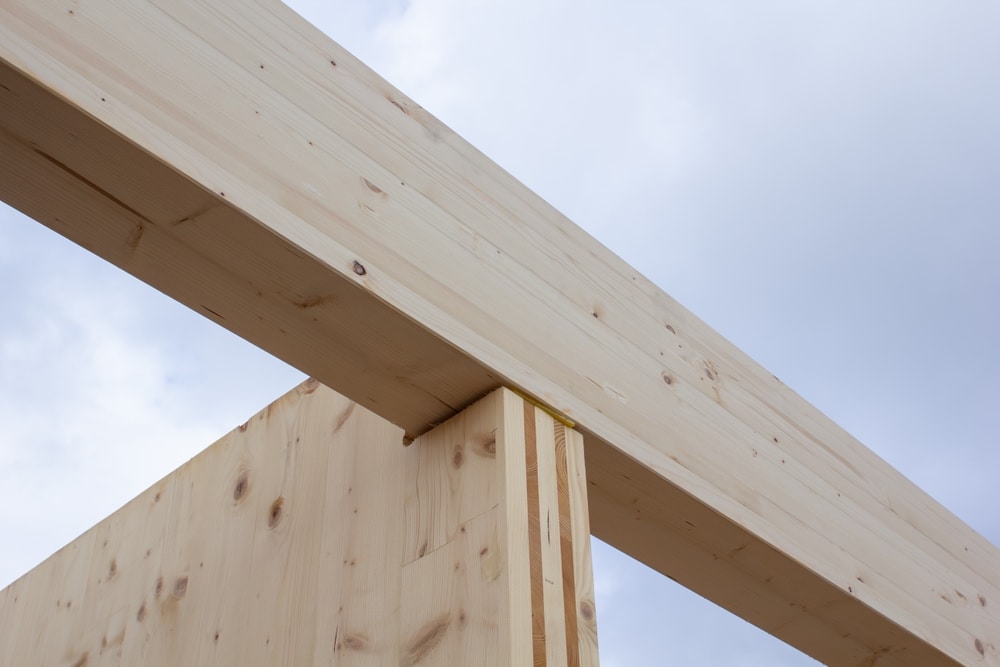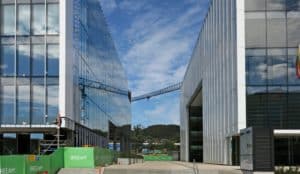A new poll by NBS has shown that seven in ten construction projects in the UK now have net zero targets.
In recent years, sustainability has transitioned from a niche concern to a central focus in the construction industry. New research from the National Building Specification (NBS) underscores this shift, revealing that around 70% of construction projects now include sustainability targets.
The research – which is now in its fourth round – surveyed nearly 600 industry professionals to explore their practices around sustainability. The promising findings mark a major milestone in the sector, reflecting a growing commitment to environmentally responsible practices.
Here, we share the key findings and what we believe could be the drivers behind this shift.
SAVE FOR LATER: TRENDS IN UK SUSTAINABLE CONSTRUCTION.
What were the full report findings?
The NBS poll highlighted some exciting areas of growth for the sustainable construction landscape, including:
- 70% of construction projects now incorporate sustainability targets.
- 43% of industry professionals report successfully achieving sustainability goals, up from a third in 2022.
- A 13% increase in net-zero projects compared to the previous year’s report.
- 64% of professionals have worked on a net-zero project in the past year, a significant rise from 49% in 2022.
- 16% growth in the number of organisations measuring their carbon footprint, with 70% now tracking emissions.
- 14% rise in firms setting carbon reduction goals, with 76% now doing so, compared to 62% previously.
- 53% of companies have adopted carbon offsetting strategies, up from 38% in 2021.
The benefits of these shifts can’t be underestimated. The construction industry has long been associated with high levels of waste, energy consumption, and carbon emissions. In fact, the sector is by far the largest emitter of greenhouse gases, accounting for a staggering 37% of global emissions. The production and use of materials such as cement, steel, and aluminium have a significant carbon footprint.
However, the tide is turning as both regulatory pressures and market demand push for greener, more sustainable practices. The NBS research indicates that sustainability is no longer a secondary consideration but a critical aspect of modern construction.
Why are more projects prioritising sustainability in construction?
The growing emphasis on sustainability in construction is being driven by a combination of regulatory, market, social, and economic factors. Around the world, governments are tightening regulations to curb carbon emissions and minimise environmental impact, often requiring construction projects to adhere to strict sustainability standards. These standards typically focus on energy efficiency, waste reduction, and the use of eco-friendly materials. Meanwhile, as environmental awareness increases, clients and investors are showing a strong preference for sustainable buildings. This is particularly evident in commercial real estate, where tenants are often willing to pay more for properties that are environmentally friendly.
In addition, many construction companies are setting ambitious sustainability goals as part of their corporate social responsibility (CSR) initiatives. These efforts not only benefit the planet but also enhance the company’s reputation and attract environmentally conscious stakeholders. Furthermore, while sustainable construction can involve higher initial costs, it offers significant long-term savings. For instance, energy-efficient buildings reduce utility expenses over time, making them a more cost-effective choice in the long run.
What do construction sustainability targets look like?
Sustainability targets in construction vary widely depending on the project’s scope, location, and objectives. However, some common targets include:
- Reducing carbon emissions: Projects aim to minimise their carbon footprint through the use of low-carbon materials, energy-efficient designs, and renewable energy sources.
- Waste reduction: Sustainable construction practices prioritise minimising waste during construction and promoting recycling and reuse of materials.
- Energy efficiency: Many projects set targets for reducing energy consumption through advanced insulation, high-efficiency HVAC systems, and smart building technologies.
- Water conservation: Sustainable construction often involves implementing water-saving technologies and systems, such as low-flow fixtures and rainwater harvesting.
- Sourcing sustainable materials: Choosing materials that are responsibly sourced, have a lower environmental impact, and are durable is a key focus for many projects.
However, these targets do come with their challenges. Higher upfront costs, the need for specialised knowledge and skills, and the complexity of integrating new technologies can all pose obstacles. Saying that, as sustainability becomes more ingrained in the industry, these challenges are increasingly being addressed through innovation, collaboration, and education – something that is front and centre of our work here at Buildpass.
READ NEXT: WHAT ARE THE MOST ECO FRIENDLY HEATING OPTIONS?
Can Buildpass help me reach sustainable construction targets?
As the industry continues to innovate and evolve, we hope that sustainability will become even more deeply embedded in construction practices, driving the development of buildings that are not only functional and aesthetically pleasing but also environmentally responsible.
It’s a journey that we will always lead the way on. As your sustainable construction experts, it’s our job to remove the guesswork from building performance.
Book a call to find out more.





















